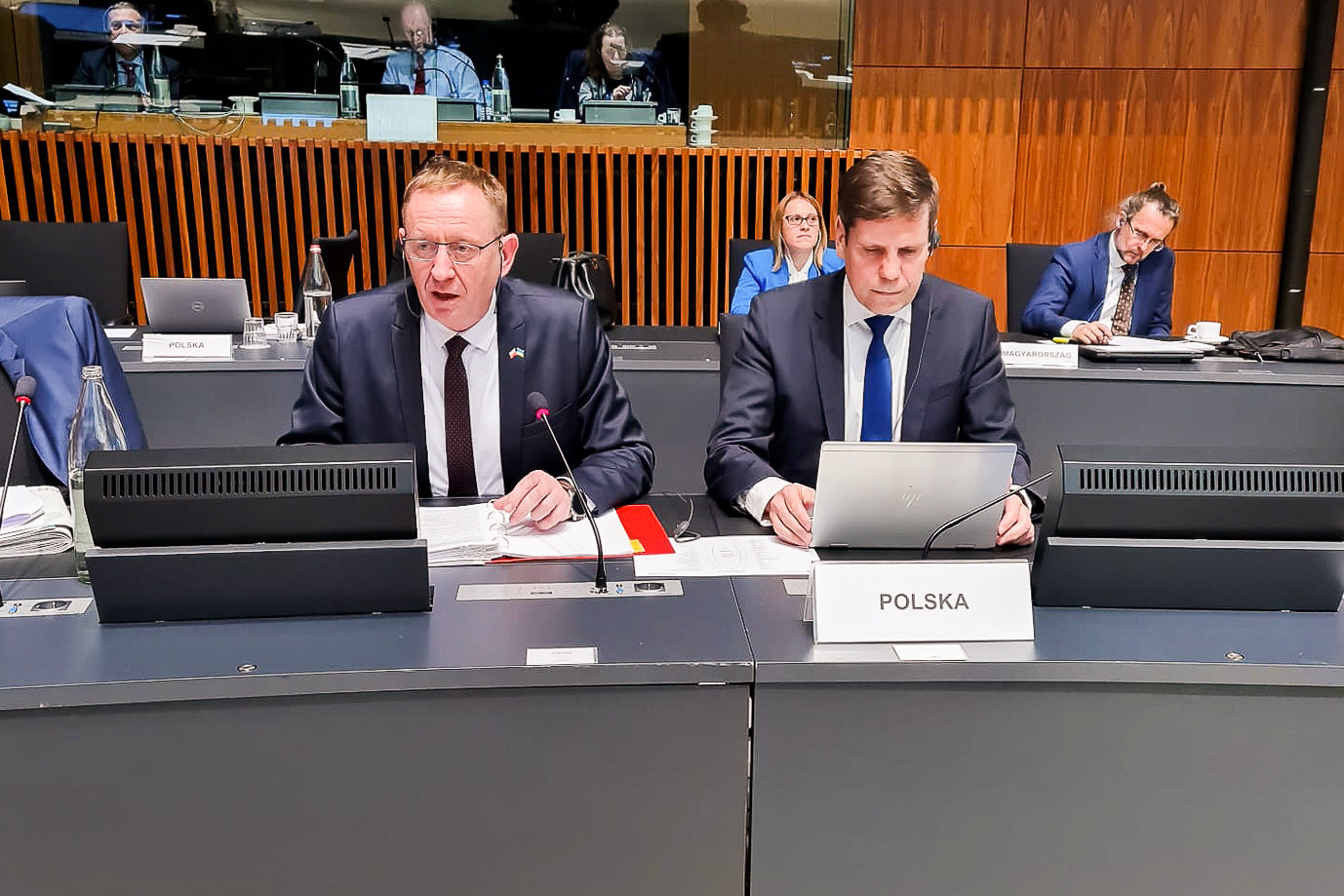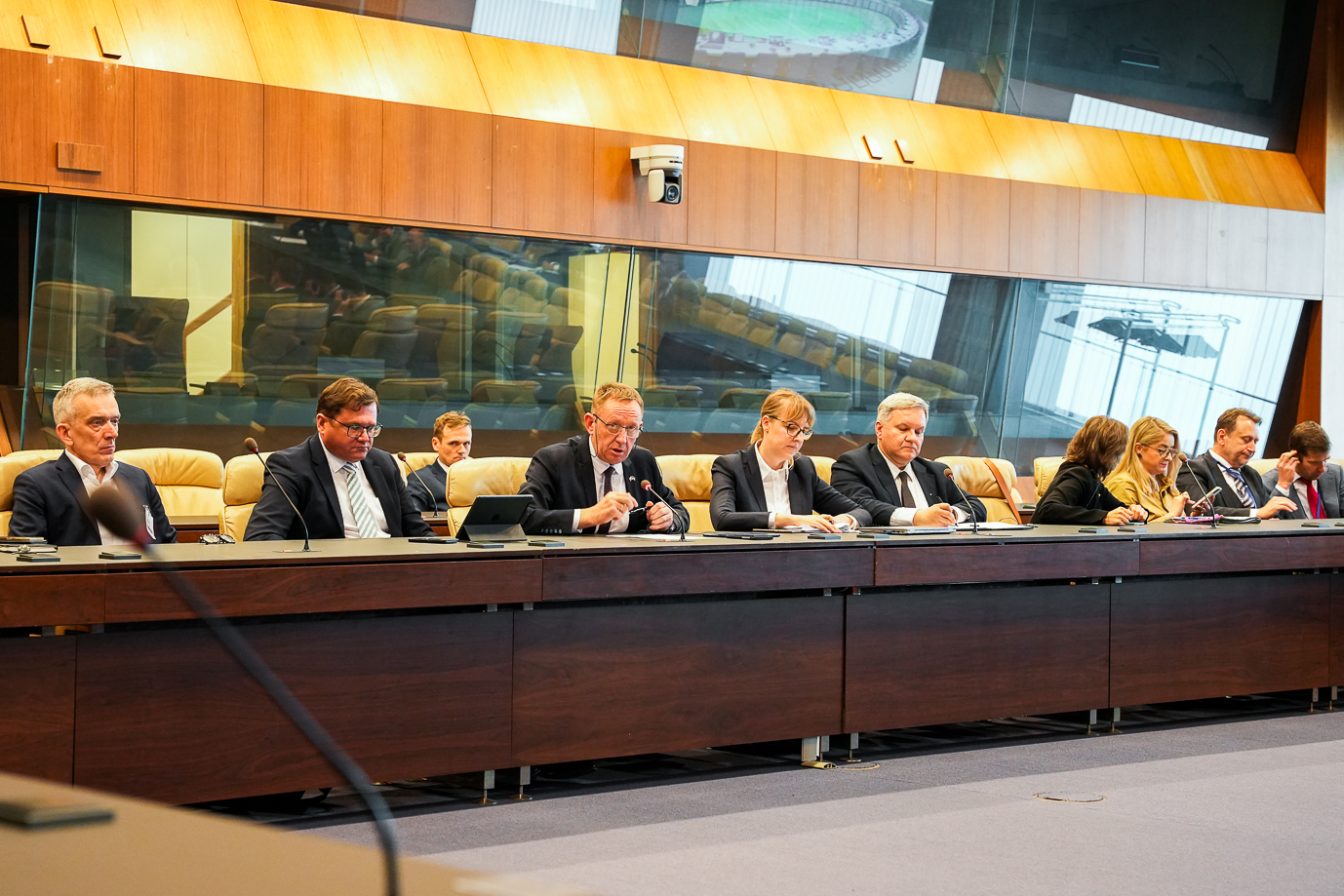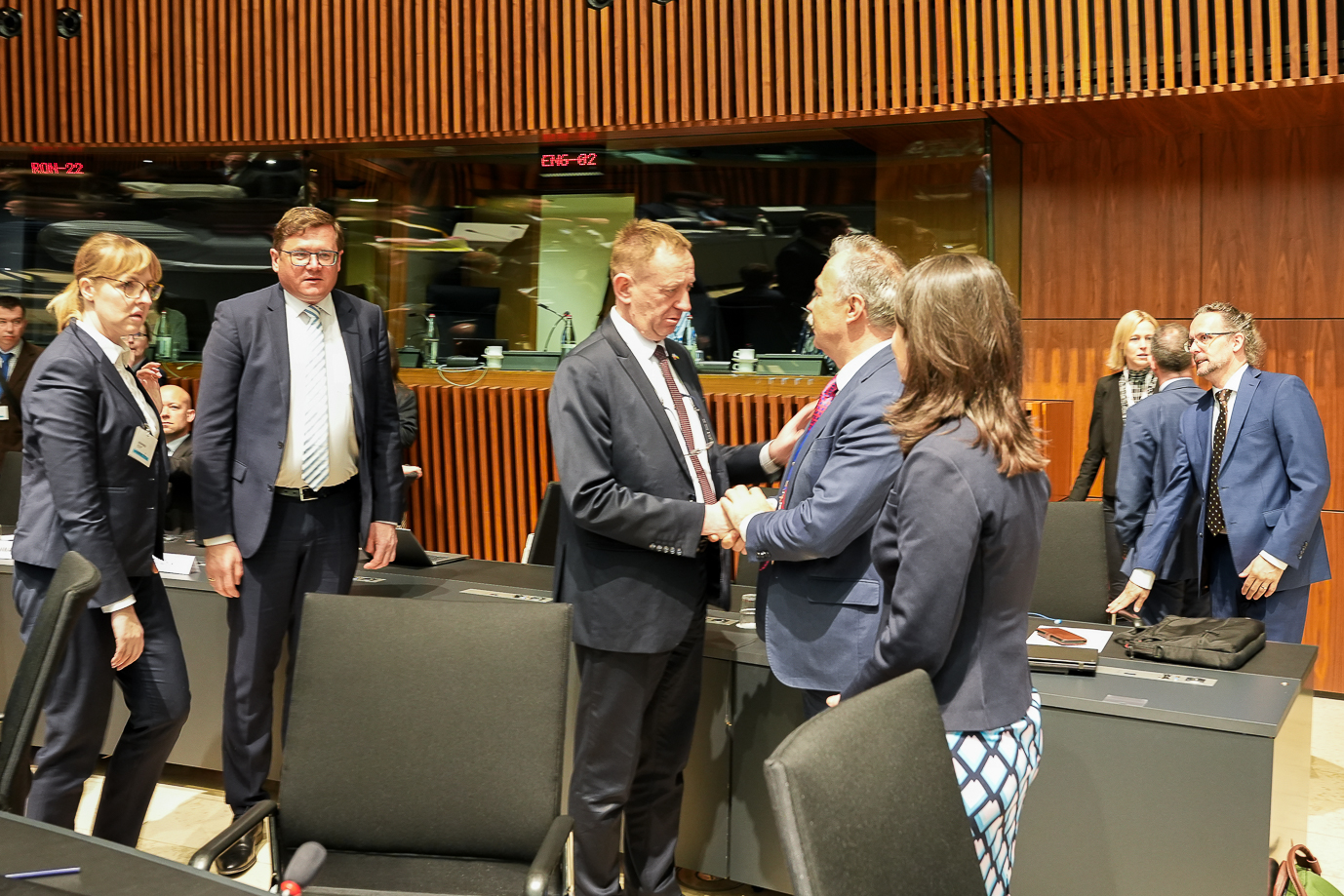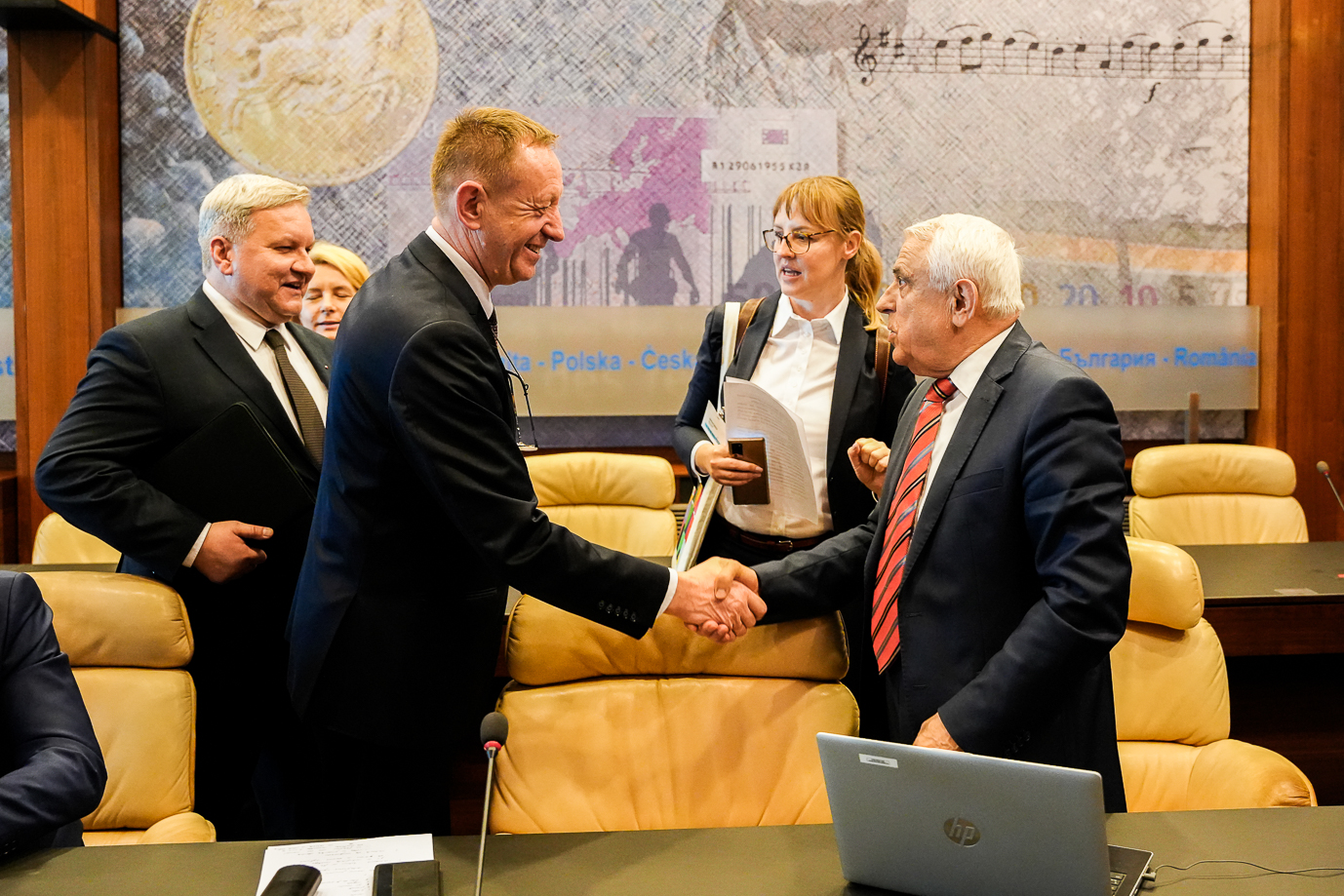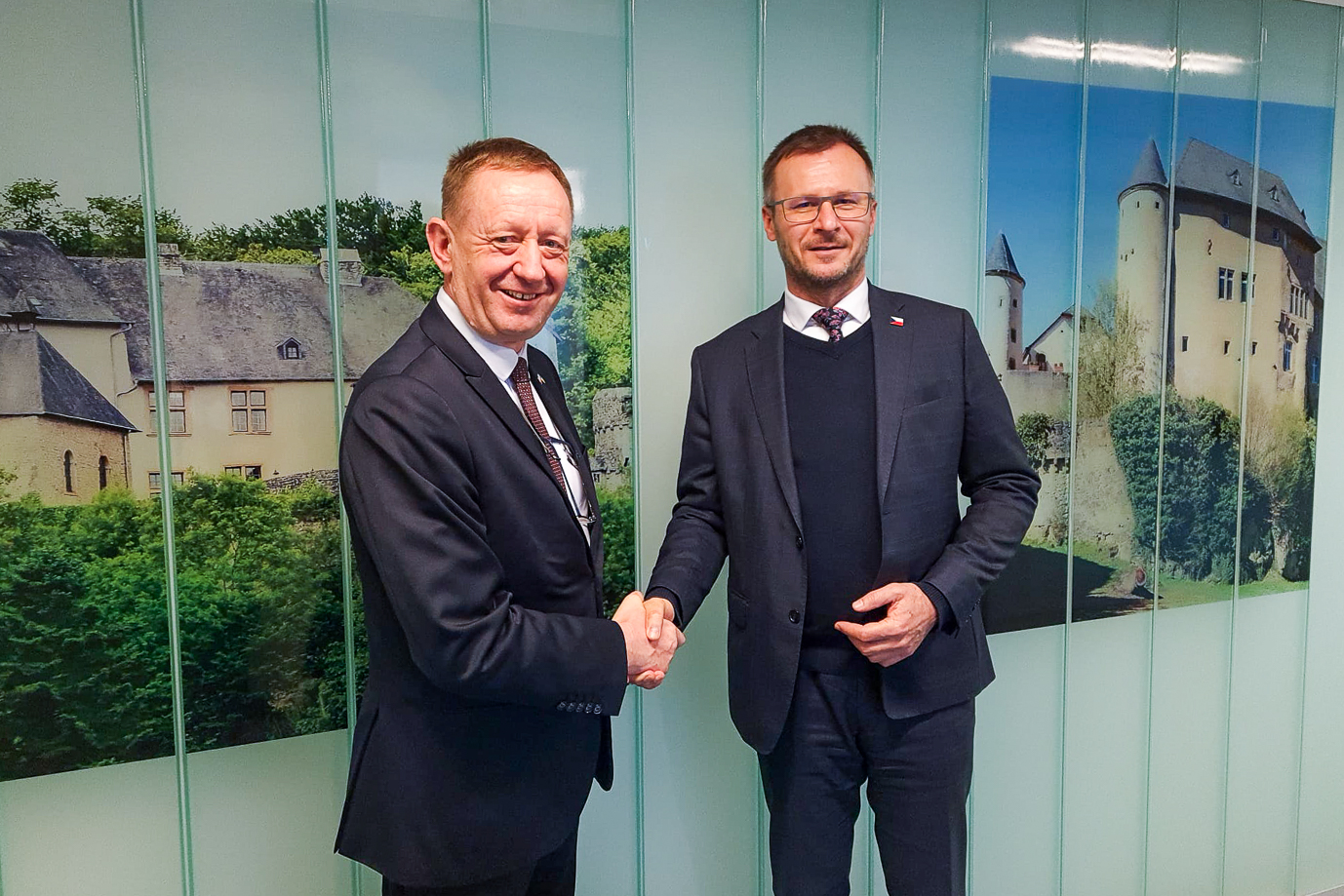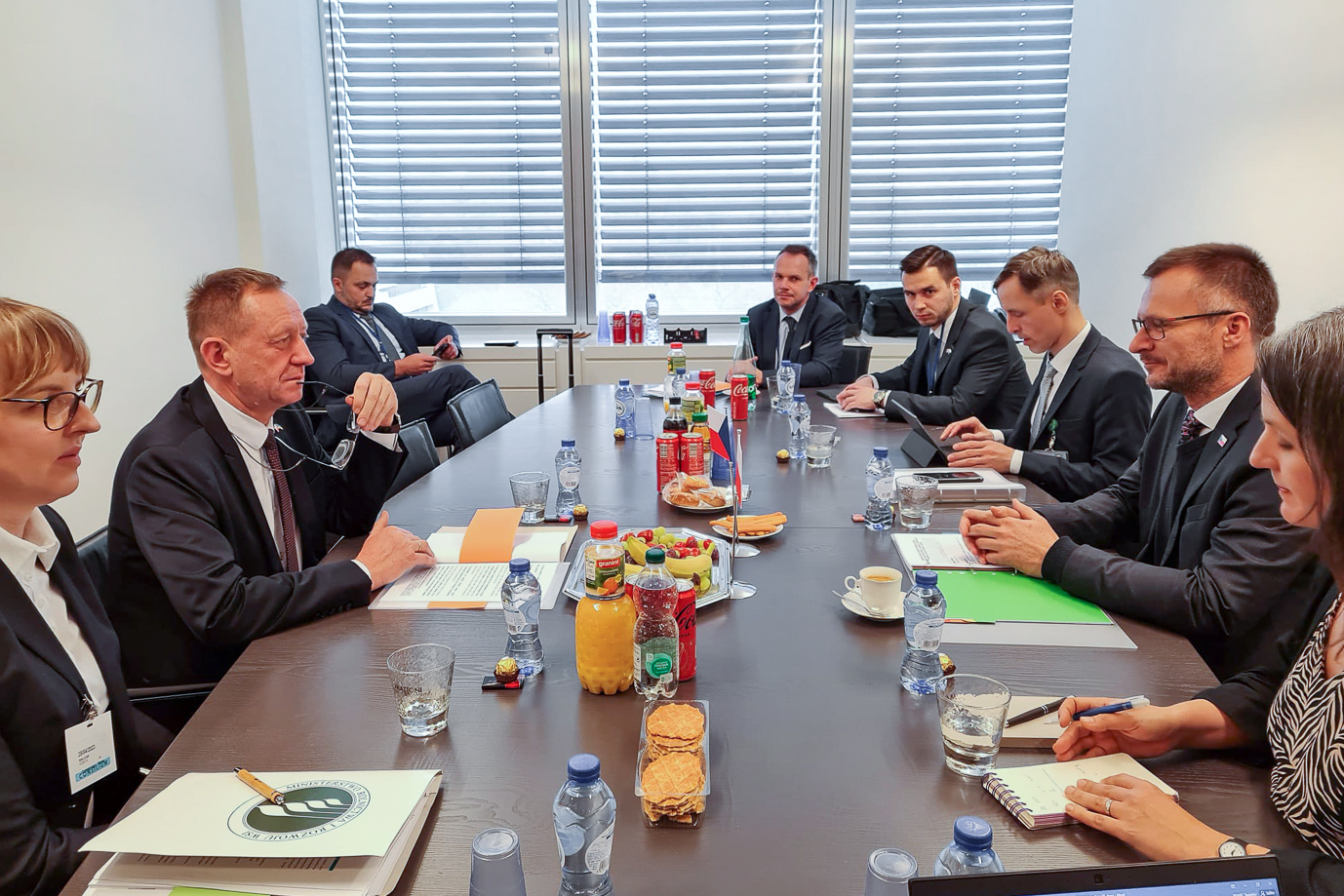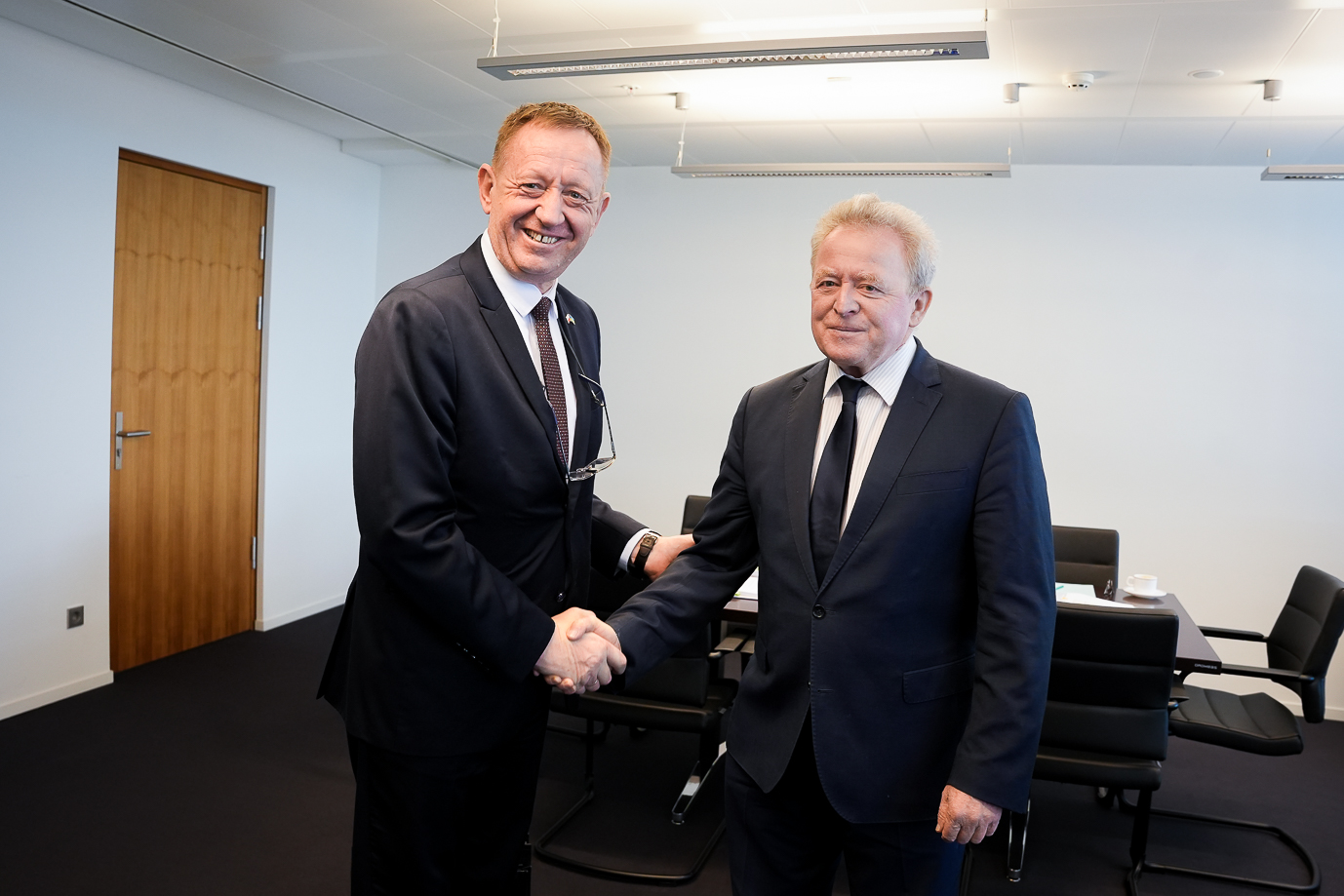The meeting of the AGRIFISH Council in Luxembourg
26.04.2023
The meeting of the Agriculture and Fisheries (AGRIFISH) Council in Luxembourg primarily addressed the current situation on the agricultural markets in the EU, the proposal for a Regulation on the certification of carbon removals and the national CAP strategic plans for 2023-2027. The Polish delegation was headed by Mr. Robert Telus, the Minister of Agriculture and Rural Development.

A joint motion of 5 frontline states
Under the item concerning the situation on the agricultural markets, Poland presented a joint motion of 5 Member States: Poland, Bulgaria, Romania, Slovakia and Hungary. The motion concerned actions which needed to be taken in order to counteract the market disturbances in the EU Member States impacted by increased imports of agri-food products from Ukraine.
Proposals of 5 states in the region
On behalf of the frontline states which strictly cooperated with one another, Minister Robert Telus presented the following most important proposals which had been worked out together by these states:
- The head of the Polish delegation maintained the position communicated in the letter of 21 April 2023 to the EC Commissioners. He pointed out that, in addition to the 8 products enumerated in the letter (specifically: sunflower oil, flour, honey, sugar, soft fruits, eggs, all kinds of meat, milk and dairy products), the list of products to be covered by the special safeguard measure (SSFG) proposed by the EC should also include apple juice.
- Minister Robert Telus stressed that the SSFG should be in effect at least until the end of the year rather than until 5 June, as proposed by the EC, since the problem of the pressure on the markets of our countries would persist longer and solutions were needed not only for the present but also for the longer term. Moreover, the Member States should be able, with the consent of the Commission, to exclude a product from the list in case of a deficit of that product on the market of a given country.
- The head of the Ministry of Agriculture called for greater financial support for producers than the one now offered by the Commission (EUR 100 million), since producers’ losses were higher. The financial assistance resources should also come from sources other than the CAP crisis reserve.
- Concluding, the Minister added that we wanted to work out a permanent mechanism and effective instruments rather than take ad hoc actions.
Another round of negotiations with the EC
On the sidelines of the AGRIFISH Council meeting, the Agriculture Ministers of Poland, Bulgaria, Romania, Slovakia and Hungary held another round of negotiations with the EC representatives: Mr. Valdis Dombrovskis, the Vice-President of the European Commission and the Commissioner for Trade, and Mr. Janusz Wojciechowski, the EU Commissioner for Agriculture. The subject of the talks with the EC was the package of instruments which the EC would introduce to mitigate and counteract the impacts of the Russian invasion of Ukraine on the markets of the countries bordering on Ukraine and those situated close to Ukraine.
The debate on the market situation
In accordance with the agenda of the Council meeting, the Ministers discussed the current situation on the agricultural markets, with particular consideration given to the impacts of the war in Ukraine.
Minister Robert Telus stressed that the very difficult situation in agriculture was solely caused by the war. At the same time, he noted that Poland did not need to be persuaded about the necessity of helping Ukraine.
The head of the Polish delegation pointed out that the purpose of the imposition of a ban on the imports of certain agricultural products from Ukraine was to induce the EC to start talks with the EU Member States where farmers were now most severely affected by the problems on the market. He stressed that the ongoing negotiations with the Commissioners for Trade and Agriculture were very important.
“We expect that it will be possible to work out mechanisms which would resolve the situation not only on an ad hoc basis, but also in the long term, since we know that the EU will have to cope with the market pressure in a longer period,” the Minister of Agriculture and Rural Development added.
The Minister explained that farmers in the countries which demanded real aid measures and support on the part of the Commission found themselves in an extremely difficult situation and that this was the reason for protests and social unrest.
The head of the Polish delegation stressed that the special safeguard measure should not cease to have effect in June and that it should be in effect as least until the end of the year.
“Poland and other countries bordering on Ukraine want to help it, but we cannot accept that the costs of this assistance are incurred by these countries only,” the Polish Minister of Agriculture added.
The Minister also pointed out that the solidarity lanes did not operate correctly.
“There are no mechanisms in place to ensure that the products which reach the frontline EU Member States are also shipped to the other Member States and third countries,” Minister Robert Telus added.
The head of the Ministry of Agriculture stressed that Poland appreciated the proposed financial assistance from the agricultural reserve; still, he considered that EUR 100 million was too little when compared with the losses incurred by the farmers in 5 states in the region. He pointed out that financial assistance should also come from outside the CAP. He appealed for solidarity and unity in order to cope with the problems on the markets. He called for a broader look in order to work out mechanisms which would be effective in the future.
The position of the European Commission
The Commission informed about the ongoing work on a package of solutions which could include:
- the introduction of a special safeguard measure (SSFG) for maize, wheat, sunflower, rapeseed and probably sunflower oil, too;
- the initiation of a safeguard procedure for other sensitive products;
- the allocation of a second tranche of financial support to 5 Member States, amounting to EUR 100 million, with the possibility of national co-financing of up to 200%.
The Commission stressed that the package would be implemented provided that the Member States lifted their unilateral measures and undertook not to introduce new ones. The EC also assured that it took steps to facilitate the operation of the solidarity lanes, supporting the logistics and Ukraine’s capacity to export. The Commission expressed its gratitude to the other Member States for their solidarity and support for the first assistance package.
The Regulation on the certification of carbon removals
The Ministers of Agriculture discussed the proposal for a Regulation on the certification of carbon removals with regard to agriculture and forestry.
Minister Robert Telus stressed the need to not only reduce greenhouse gas emissions, but also to develop systems enabling carbon capture so as to achieve the ambitious climate targets.
“We see an important role of the agriculture sector in these activities. The EU scheme for the certification of such activities can be a crucial instrument supporting carbon sequestration,” the Minister added.
The head of the Ministry of Agriculture proposed that the solutions of key importance for the scheme, such as the methodology for calculating the baseline, the additionality of the practices applied, the liability mechanism or the control and monitoring system, should be set out in the content of the Regulation itself rather than in delegated acts.
The Minister also pointed out the need for the carbon removal certification scheme to be compatible with the implementation of the Common Agricultural. Farmers who use CAP instruments should at the same time be able to participate in voluntary removal certification.
“There is also a need to provide adequate incentives for farmers so that as many of them as possible would like to use the scheme,” the Minister of Agriculture and Rural Development added.
Minister Robert Telus argued that the fundamental task of the agriculture sector was to safeguard food security. For this reason, the impact of the outcomes of the carbon removal certification scheme to be introduced should be continuously and closely monitored.
WPR strategic plans
On the basis of information from the Commission, the Ministers exchanged their views on the state of play of the national CAP strategic plans for 2023-2027.
Minister Robert Telus informed that due to the delayed publication of the primary act and the implementing acts the strategic plans did not fully reflect the current status of needs of the agri-food sector. He stressed that the timetable of the work on the plans made it impossible to fully respond to the challenges related to the socio-economic effects of the pandemic and the crisis generated by the war in Ukraine.
The head of the Ministry of Agriculture said that, as the first experiences in the launch of the plan had demonstrated, the primary provisions were hardly flexible and hampered a quick response to the challenges emerging in agriculture and rural areas.
“Therefore, there is a need for greater flexibility and the ability to amend the plan more often, “ the Minister added.
Sustainable use of plant protection products
As part of the meeting, the Ministers of Agriculture also discussed a motion filed by the Latvian delegation, along with 7 Member States, including Poland, regarding doubts about the proposal for a Regulation on sustainable use of plant protection products.
Poland fully supported the Latvian motion and stressed that legal regulations on plant protection products should take into account the threats posed by pests and plant diseases, as well as the availability of effective alternative methods.
Poland stated that we had to be able to protect native crops and to meet restrictive phytosanitary requirements adopted by third countries for imports. Unfortunately, the solutions put forth in the proposal for a Regulation do not respond to these demands.
Bioeconomy
The Council approved the conclusions on the opportunities provided by the bioeconomy in the light of current challenges, with a focus on rural areas.
A meeting with the Czech Minister of Agriculture
Minister Robert Telus held a bilateral meeting with Mr. Zdeněk Nekula, the Czech Minister of Agriculture. The Ministers talked about the measures which the EC should take in order to stabilise the situation on the agricultural markets and to compensate for losses incurred by farmers. The Ministers stressed the importance of unity in facing common challenges. They also agreed that there was a need to create mechanisms to make solidarity lanes work.

